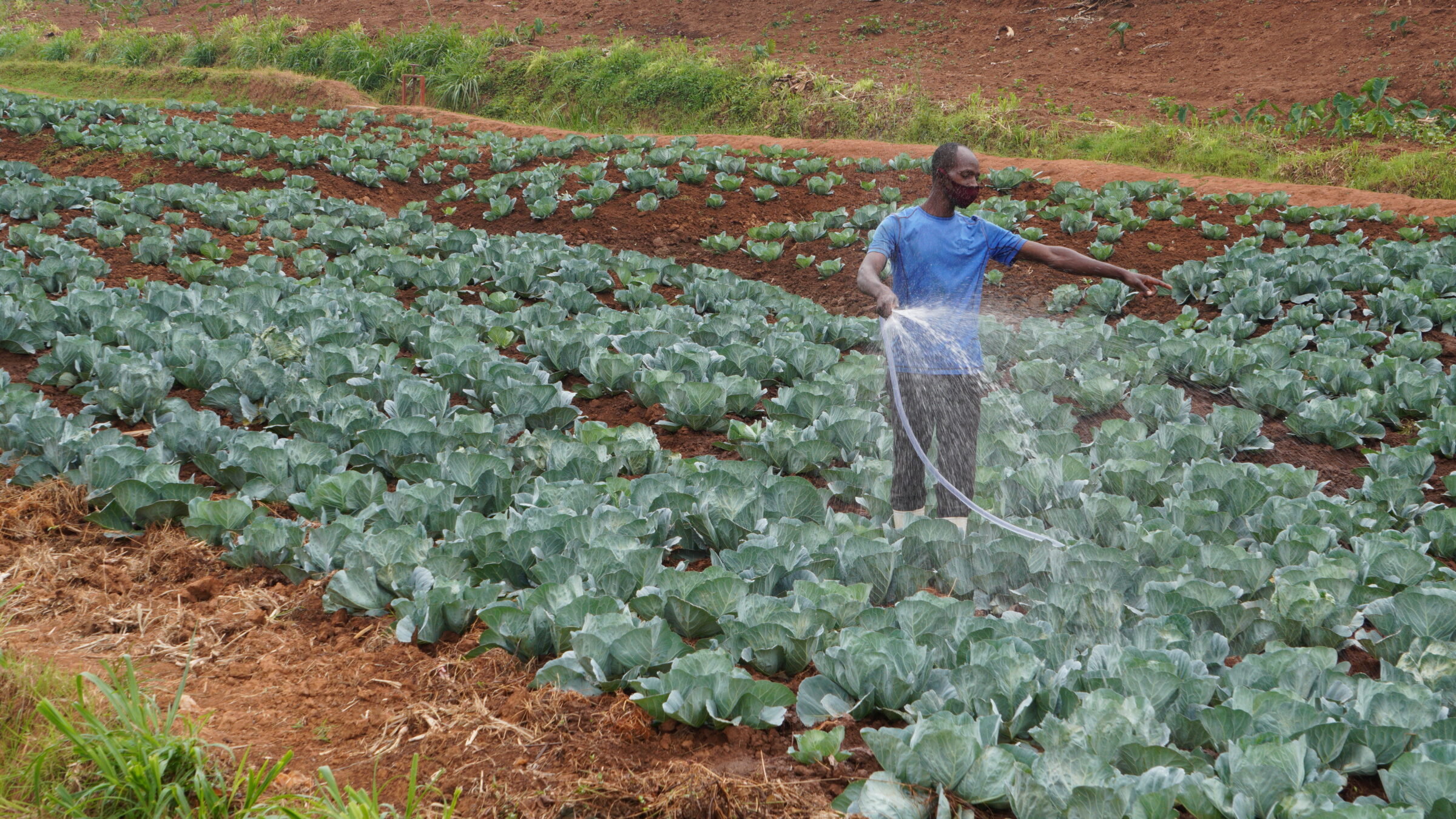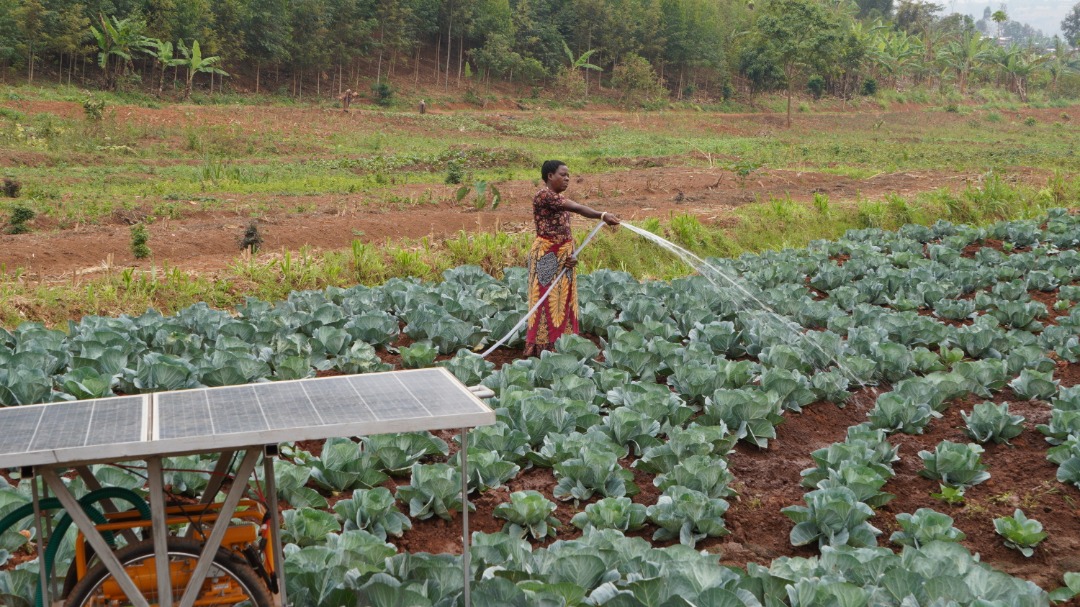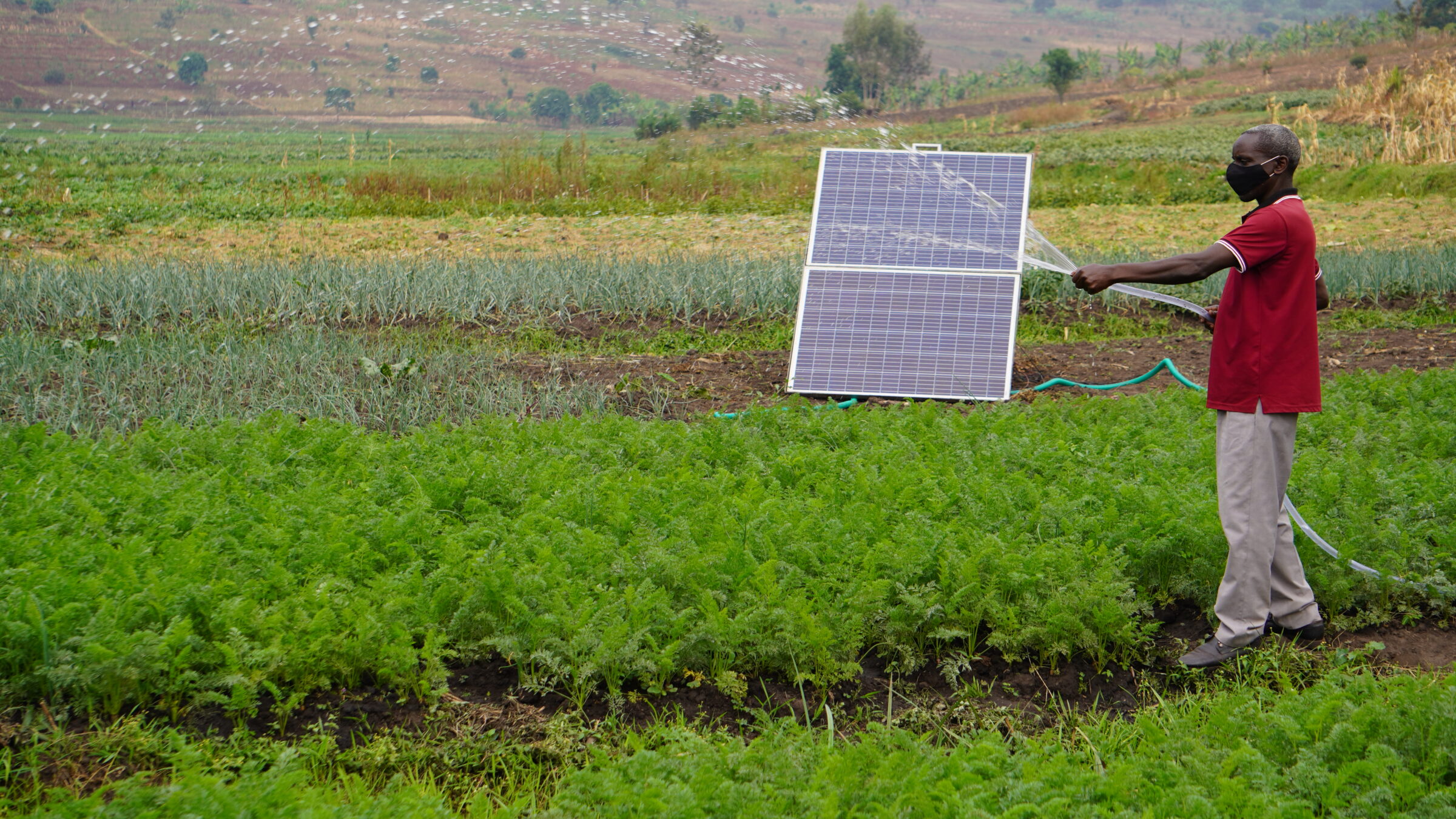Growing with Change: Promoting green solutions for market-led agriculture under changing climatic conditions in Eastern Province of Rwanda, 2020-2021
Donor:
Rwanda Green Fund (FONERWA)
Partners:
Ministry of Agriculture and Animal Resources (MINAGRI), Rwanda Agriculture and Animal Resources Development Board (RAB), National Agricultural Export Development Board (NAEB), Rwamagana District, Kayonza District
Goal
The project goal is to support farmers’ cooperatives to sustainably increase quantity and quality of high value crops by promoting irrigation systems with zero GHG emissions, solar energy cold rooms and maize drying facilities for post-harvest losses reduction.
The specific objective is to promote the use of climate resilient agriculture technologies to help farming households in Eastern Province of Rwanda cope with the changing climate. The project will support the achievement of the Green Growth and Climate Resilient Strategy (GGCRS) focused on sustainable intensification of agriculture and diversification of agricultural products in local and export markets.
What we do
The project will focus on three main activities:
- Demonstration of climate resilient agriculture using affordable solar powered irrigation systems for crop production for small holder farmers
- Promotion of post-harvest handling techniques using green energy
- Development and strengthening of financial and management capacity of smallholder farmers to support and scale up sustainable climate resilient agricultural techniques
Accomplishments
- Training capacity needs assessment of extension services and farmers to use sustainable climate resilient agriculture technologies
- Capacity development plans created to enhance capacity of extension services and farmers to use sustainable climate resilient agriculture technologies
- 120 farmers from 12 cooperatives including 55 women (45.8%) trained on climate resilient agriculture using renewable energy for crop production
- 24 local technicians trained on post-harvest handling techniques using green energy
- Installation of 24 portable solar powered irrigation pumps designed to irrigate maximum 96 hectares under 12 cooperatives
- Installation of 2 solar cold rooms with the total capacity to handle 50 tons of vegetables between 14 days and 2 month
- Installation of 2 solar dryers with the capacity to fast dry 50 tons of cereals
- Strengthened capacity of 123 farmer cooperatives on operation, use, maintenance, and management of post-harvest handling infrastructure
- 12 cooperative members trained on cooperative management, planning and budgeting, financial management, good governance and gender mainstreaming in climate resilient agriculture



